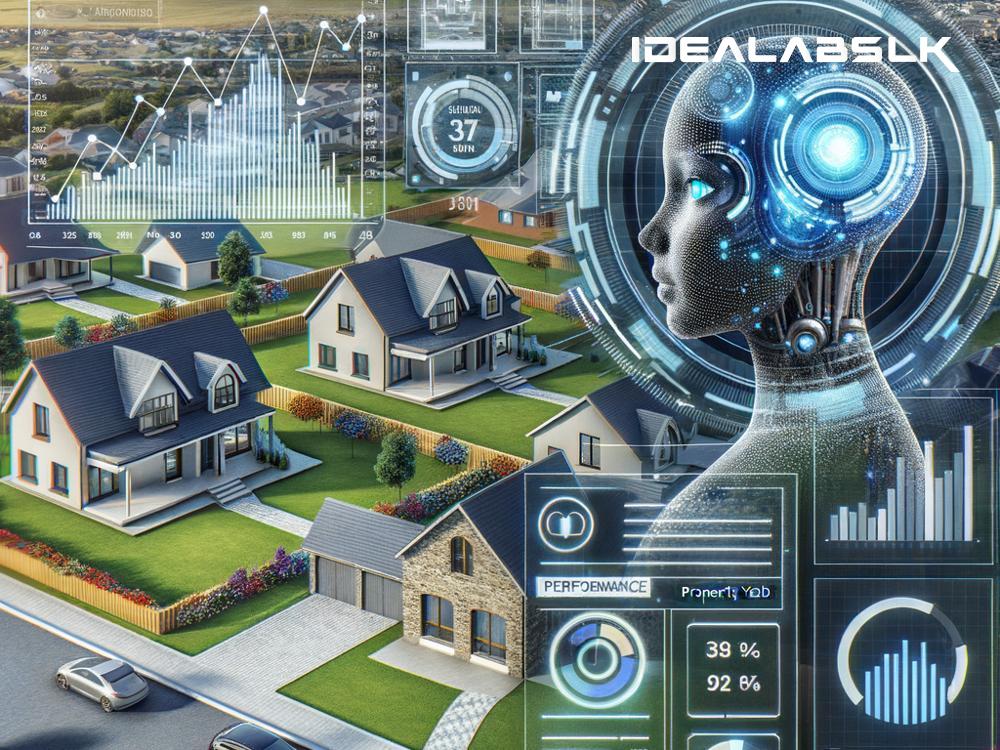Unlocking the Future: How AI Revolutionizes Real Estate Property Performance Monitoring
In recent years, the real estate sector has undergone a significant transformation, largely driven by the rapid evolution of technology. Among these advancements, Artificial Intelligence (AI) has emerged as a game-changer, especially in the realm of property performance monitoring. This might sound like a complex concept reserved for tech gurus, but in simple terms, it's about using smart technology to keep an eye on how properties are doing, whether that's a cozy family home, a bustling shopping center, or a towering office building. So, let's dive into how AI is reshaping the landscape of real estate and making the monitoring of property performance not just easier but also much more efficient.
The Basics of AI in Real Estate
At its core, AI involves machines or computers mimicking human intelligence to perform tasks and improve themselves based on the information they collect. In real estate, this technology is incredibly useful for gathering and analyzing vast amounts of data about properties. Think of it like having a super-smart assistant who can quickly analyze years of sales data, predict future market trends, or even alert you about property maintenance needs before they become costly problems. The goal here is to make property management more predictive rather than reactive.
Enhanced Decision Making
One of the most significant benefits of AI in property performance monitoring is enhanced decision-making. By harnessing the power of data analytics, property owners and managers can make informed decisions about their investments. For instance, AI can help predict which properties are likely to increase in value or identify the best times to buy or sell assets. This isn't about replacing human judgment but rather augmenting it with deep, data-driven insights that were previously unimaginable.
Predictive Maintenance
Predictive maintenance might sound like a buzzword, but it's a real game-changer. Traditional property management often involves dealing with maintenance issues as they arise, which can be both stressful and expensive. AI turns this old model on its head by using data from various sources (like sensors and historical maintenance records) to predict when a property will need upkeep or repairs. This proactive approach not only saves time and money but also extends the lifespan of the property's critical systems and infrastructure.
Energy Efficiency and Sustainability
With climate change and sustainability being urgent concerns, real estate is also under the spotlight. AI helps in monitoring the energy performance of buildings, adjusting automatically for optimal efficiency. Imagine a building that adjusts its heating, cooling, and lighting based on real-time data to reduce energy waste. Not only does this lower utility bills, but it also contributes to a healthier planet by reducing the property's carbon footprint.
Personalization for Tenants
AI isn't just about the bricks and mortar; it's also transforming the way properties serve their tenants. Through AI-powered systems, it's possible to provide personalized experiences for tenants based on their preferences and behaviors. For instance, smart home systems can learn a tenant's preferences around lighting and temperature, automatically adjusting for comfort and efficiency. In commercial properties, AI can optimize space usage, improving the tenant experience and satisfaction.
Overcoming Challenges
Of course, the integration of AI in real estate doesn't come without its challenges. Concerns around data privacy, cybersecurity, and the initial cost of implementing AI technologies are valid points that the industry is actively addressing. However, the potential benefits far outweigh the hurdles, and with proper regulations and safeguards, AI can genuinely revolutionize property performance monitoring.
The Road Ahead
The fusion of AI and real estate is still in its early stages, but its impact is already profound. As technology continues to advance, we can expect even more innovative applications of AI in property performance monitoring, further streamlining operations, enhancing decision-making, and ultimately transforming the physical spaces in which we live and work.
In conclusion, AI stands as a beacon of innovation in the real estate sector, promising not only to enhance property performance monitoring but also to redefine what's possible in real estate management and investment. Its ability to analyze data, predict trends, and offer actionable insights is ushering in a new era of efficiency and effectiveness in property management. While challenges remain, the journey toward fully embracing AI in real estate is well underway, signaling a future where technology and human insight work hand in hand to achieve remarkable outcomes.

